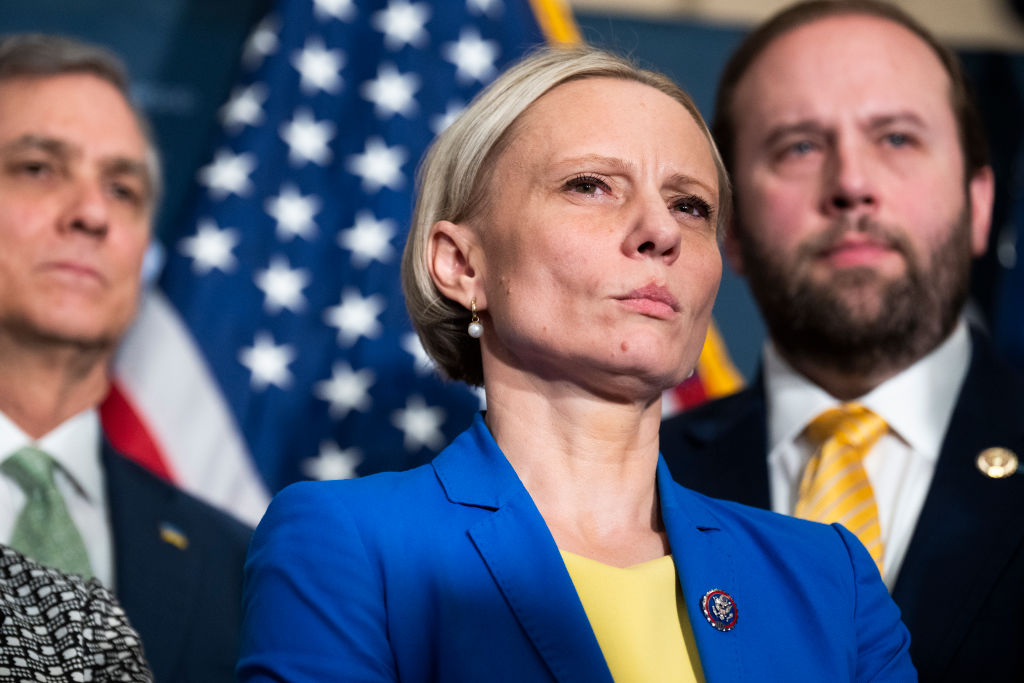Republican Congressional Representative Victoria Spartz, the only U.S. lawmaker born in Ukraine, has submitted amendments to reduce the proposed Ukrainian aid package set to be voted on in the U.S. House of Representatives. One of her amendments suggests removing provisions regarding the PDA program, which allows the White House to supply weapons directly to Ukraine from U.S. military stockpiles. Spartz also targets economic aid included in the proposal by proposing to eliminate over $7.8 billion in loan assistance and preventing the U.S. president from forgiving Ukraine’s debt under specific conditions. She also aims to cut $481 million in funding designated for refugees and prevent countries affected by the war in Ukraine from using funds within the FMF program, which supports a U.S. ally’s weapon needs.
Born in a small city in Chernihiv Oblast and moving to the U.S. in 2000, Spartz became the first Ukrainian-born member of Congress in 2021. Known for her staunch support of former President Donald Trump, she is now making waves in the discussion over aid to Ukraine through her proposed amendments to the legislation. Spartz’s efforts may lead to a reconsideration of the proposed aid package and spark debate among lawmakers regarding the best course of action to support Ukraine in its conflict with Russia. The inclusion of these amendments highlights the complexity of foreign aid policies and the varying perspectives within the U.S. Congress when it comes to providing assistance to other countries, especially in times of conflict.
CIA Director William Burns warned lawmakers in Washington, D.C., about the urgency of approving aid to Ukraine to prevent potential loss in the war against Russia. With the possibility of Ukraine losing by the end of 2024 without adequate support, Burns emphasized the critical need for the U.S. to provide assistance to prevent further escalation of the conflict. His message adds to the growing concern over the situation in Ukraine and the impact of delayed or reduced aid on the country’s ability to defend itself against Russian aggression. The warning from the CIA Director underscores the gravity of the situation and the importance of swift action by the U.S. government to support Ukraine in its ongoing struggle for sovereignty and security.
The proposed amendments by Rep. Victoria Spartz and the warning from CIA Director William Burns highlight the ongoing debate and decision-making process within the U.S. government regarding aid to Ukraine. As the conflict with Russia continues to escalate and threaten Ukraine’s stability, the role of the U.S. in providing assistance becomes crucial. The differing perspectives within Congress, as evidenced by Spartz’s amendments, reflect the complexities of foreign policy and national interests when it comes to supporting allies in times of conflict. The urgency communicated by Burns underscores the need for immediate action to prevent further loss and destabilization in Ukraine.
The proposed aid package for Ukraine, which includes military and economic assistance, is a key point of contention among lawmakers in the U.S. Congress. Rep. Spartz’s efforts to reduce certain aspects of the aid package demonstrate the challenges of navigating foreign aid policies and balancing priorities within the government. With the potential for Ukraine to face significant losses without aid, the decision-making process surrounding the proposed legislation becomes critical in determining the level of support the U.S. will provide to its ally. The debate over the aid package highlights the complexities of international relations and the need for careful consideration in determining the best course of action to support countries in conflict.
As the only U.S. lawmaker born in Ukraine, Rep. Victoria Spartz holds a unique perspective on the situation in her home country and brings that perspective to the table in discussions over aid to Ukraine. Her proposed amendments to the legislation reflect her views on how the aid package should be structured and what aspects could be adjusted to better align with her beliefs and priorities. By advocating for changes to the proposed law, Spartz adds to the ongoing dialogue within Congress on how best to support Ukraine and address the evolving situation in the region. Her actions contribute to the broader conversation on foreign aid and national security, highlighting the diverse range of opinions and approaches within the U.S. government when it comes to international assistance and conflict resolution.















